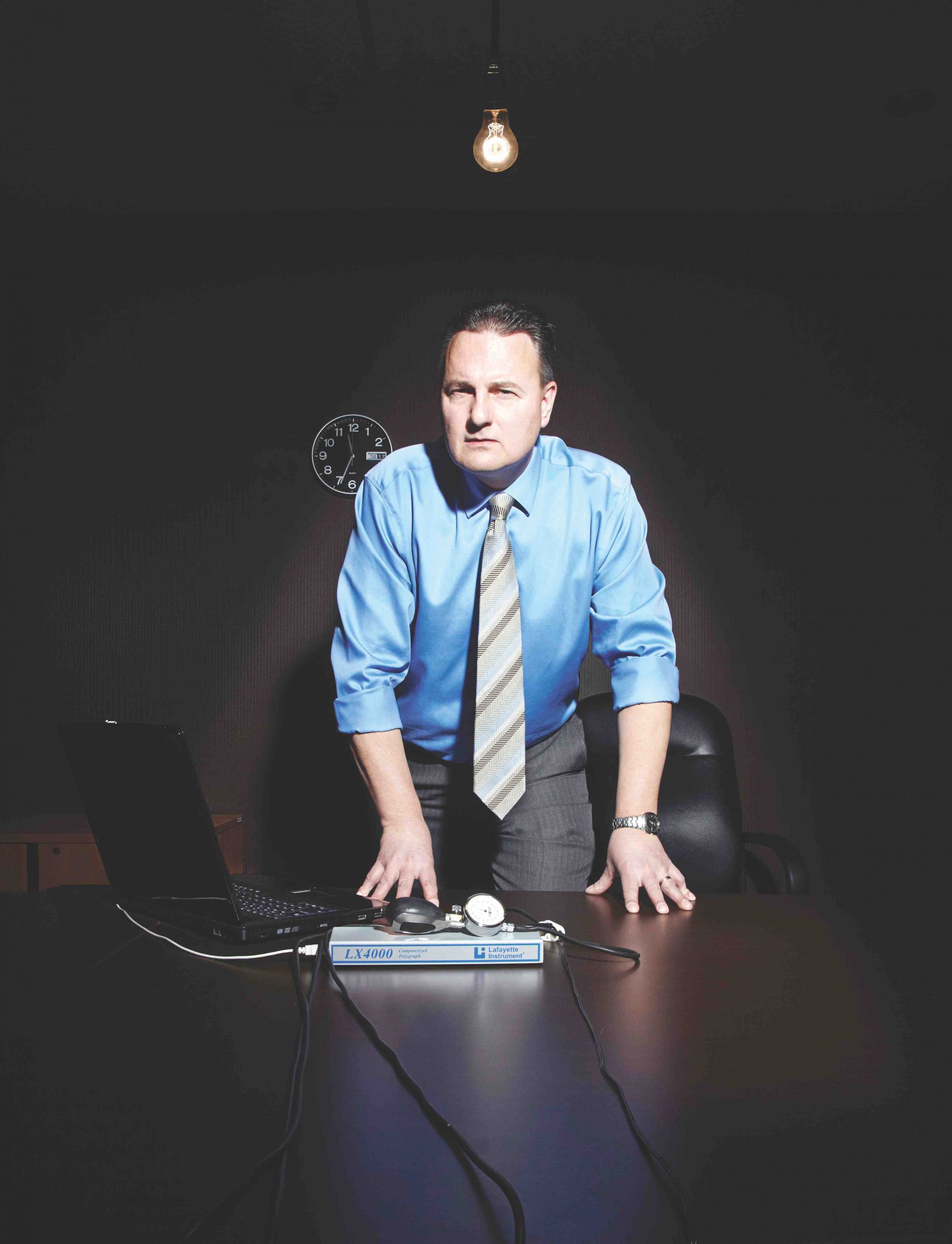Sociopaths
“A true sociopath can’t be tested with a polygraph test. A sociopath, if they’re hungry walking down the street and they see a deli window with some food in it, they’ll smash the window, take the food and eat it. They know the police might come, but they don’t care. So, they don’t have a fear response and they don’t care if they’re caught.
Can’t Trick a Polygraph
“There’s all kinds of information on the Internet about how to trick a polygraph. People say you can put antiperspirant on your palms, you can medicate yourself to slow your heart rate, or put a tack in a shoe. The first two will just dampen the response, but the fight-or-flight response will still kick in, just to a lesser extent. The tack will create such a large reaction that it’ll be obvious something’s off.
Stress
“Just as stress can be harmful to our health, so can lying. I’m not talking about the little white ‘love your outfit’ lies; I’m talking about the huge ‘I don’t know if the marriage is right anymore’ ones. I think after a while, many people forget what’s important – they lie to those closest to them and even themselves. They sacrifice things like health and relationships for money or promotions.
Breathing Patterns
“People’s breathing patterns are naturally irregular when they are talking. But different people have different patterns that might indicate a lie. Sometimes they answer a question and stop breathing for five to seven seconds. When they start breathing again, they take no extra air to makeup for the oxygen lost. Their adrenaline is running so hard that they don’t need it; they’re that afraid of getting caught.
Science
“People have been monitoring the physiology of others during certain stimulus for a very long time – probably at least 100 years. Certain things were discovered in haphazard ways, like the blood rushing to your brain when afraid. There was a psychologist who was monitoring someone’s brain and they noticed that when someone entered the room unexpectedly, the blood rushed to the patient’s brain.”
